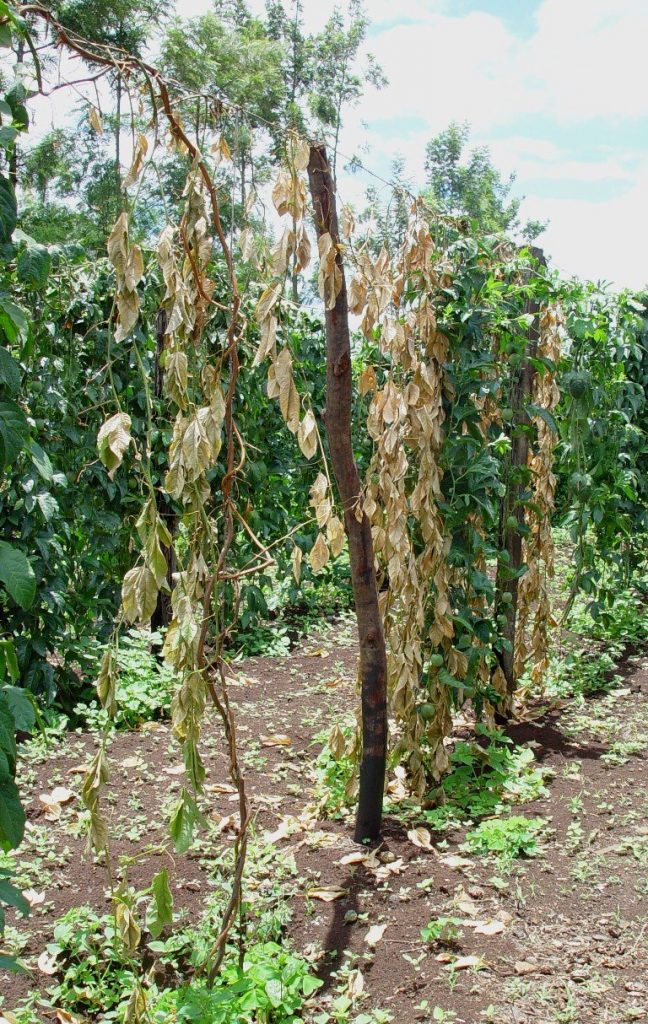Credits: Biovision-Infonet

(c) A. M. Varela, icipe

(c) A.M. Varela & A.A.Seif, icipe
In seedlings, the cotyledons lose their healthy look (luster) and wilt. This is followed by complete collapse of the plants. Older plants initially exhibit wilting and yellowing of leaves near the crown. Later individual vines and then the whole plant wilt and dies. If the taproot and stem are split open, an orange-brown discolouration of the water conducting tissues will be seen. Fruits from affected vines are small with poor flavour and colour.
The fungus is a soil inhabitant. It enters the roots and grows in the water conducting tissues thereby blocking water movement. The fungus is also carried on the seeds and in soil adhering to farm implements. It can persist in soil for long periods. The disease is favoured by warm weather (optimum soil temperature for infection is about 27.80C) and air humidity of more than 80% over a long period.
What to do:
- Use resistant varieties, if available.
- Use certified disease-free seeds.
- Avoid spread of the fungus through contaminated farm implements and furrow irrigated water.